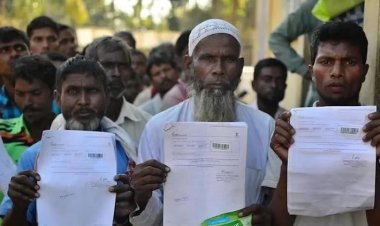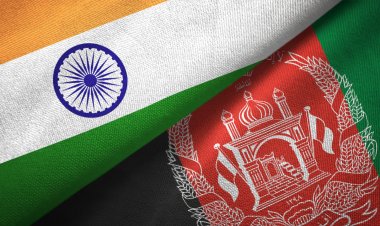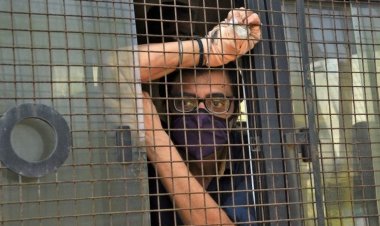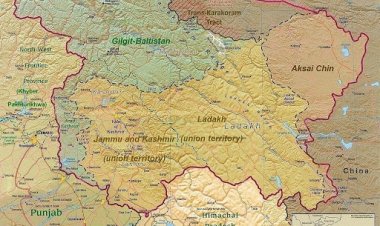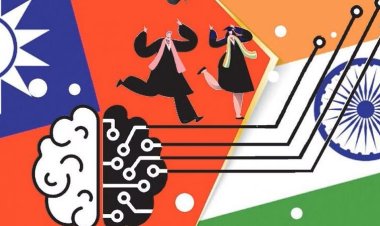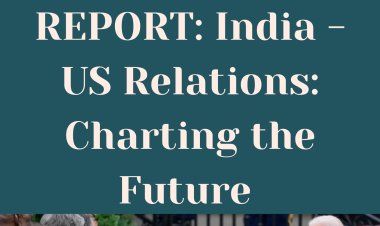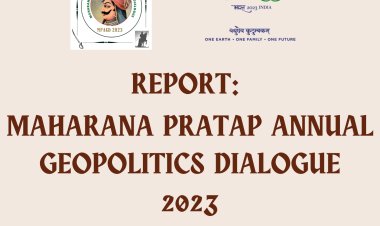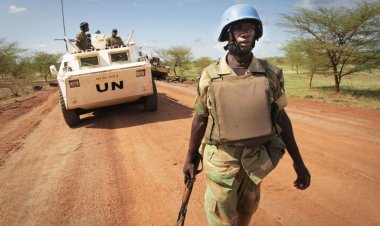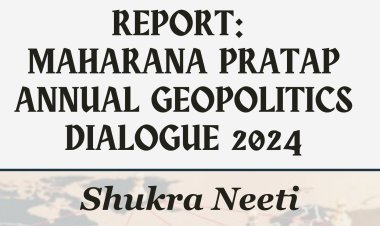Why PR Campaigns Fail in Balochistan: The Case for Justice Over Optics

Analysis
By Arun Anand
In Pakistan’s largest and most resource-rich province, Balochistan, the struggle to win over hearts and minds is being waged not through justice or meaningful reconciliation, but via hashtags, conferences, and state-funded think tanks. It is a struggle the state is steadily losing—not due to a shortage of resources or initiatives, but because it has failed to acknowledge a fundamental truth: no volume of public relations can substitute for the absence of justice.
Over the past several decades, state repression in Balochistan by Pakistani authorities has escalated to deeply troubling levels. The region has effectively been reduced to a ghetto where any form of dissent—whether genuine or perceived—has been criminalised. This has led to waves of arrests and detentions, including of prominent activists such as Mahrang Baloch, who has consistently spoken out against human rights abuses. Grassroots demonstrations by families of the disappeared—often led by women and children carrying photographs of their missing sons, brothers, or fathers—are met not with empathy, but with intimidation. In such a climate of fear, state-sponsored efforts to sanitise its image through selective think tanks and engineered social media narratives appear less as attempts at reconciliation and more as efforts to obscure the truth.
Balochistan stands as an anomaly within Pakistan’s federal framework. Despite possessing vast mineral resources—including copper, coal, gas, and gold—the province ranks lowest on nearly every human development indicator. According to a report by the United Nations Development Programme (UNDP), Balochistan’s multidimensional poverty rate is an alarming 71.2 percent, compared to the national average of 38.8 percent, placing it among the poorest regions in the country. Access to basic healthcare remains limited, educational institutions suffer from chronic underfunding, and unemployment is widespread. The province records the lowest Human Development Index (HDI) in Pakistan at 0.41, compared to the national average of 0.56—a figure that closely aligns with some of the world’s lowest-scoring nations, such as Niger (0.414) and the Central African Republic (0.414).
For decades, Baloch nationalists have highlighted the extractive nature of the relationship between Islamabad and the province. The revenue generated from Balochistan’s natural resources disproportionately benefits the federal government, which has been criticised for unequally allocating national resources by giving undue priority to Punjab, consequently leaving Baloch communities impoverished and disillusioned. One of the reactions from the Baloch population has been the rise of armed insurgency, which has grown increasingly organised and sophisticated over the years.
However, it is not merely economic marginalisation that has driven the Baloch insurgency. At its heart lies a long-standing cycle of political repression, cultural exclusion, and severe state violence. Human rights organisations, including the Human Rights Commission of Pakistan and various international bodies, have recorded extensive violations such as enforced disappearances and extrajudicial killings. Consider, for example, the widespread occurrence of enforced disappearances in the province over the past two decades. According to the Voice for Missing Baloch Persons (VMBP)—an advocacy group led by families of the disappeared—over 7,000 individuals have been forcibly taken by state agencies, with thousands still missing. Even the government’s own Commission of Inquiry on Enforced Disappearances (CIED) has officially acknowledged around 2,752 such cases as of 2024.
Confronted with increasing scrutiny, both domestically and internationally, the state’s response has not involved introspection or genuine policy reform but rather narrative control through various strategies, including the creation of institutions and funding of influencers. For example, the Balochistan provincial government established the Balochistan Think Tank Network (BTTN) in 2021, describing it as an “independent, non-partisan body” tasked with conducting research on matters ranging from “regional security to socio-economic development”. In reality, however, it has largely functioned as a tool for policy laundering—reframing official state narratives in polished language to create a façade of policy depth and legitimacy.
Simultaneously, the government is reportedly allocating over PKR 5.5 million monthly towards employing “social media personnel” whose primary responsibility is to promote state-led initiatives while discrediting dissenting voices. As per a report by The Balochistan Post published in December 2024, these individuals are remunerated to troll human rights activists, generate favourable narratives, and surveil digital platforms for opposing viewpoints. This practice has drawn criticism from journalists and civil society activists, who have accused Sarfaraz Bugti’s administration of misusing public funds to suppress local grievances through misinformation and to silence those who seek to expose the excesses committed by the state and its various institutions.
These criticisms are not mere rhetorical overstatements. They underscore a widening trust deficit between the Baloch population and the Pakistani state—one that no think tank discourse or influencer-driven campaign can mend without genuine justice and systemic reconciliation. It appears, however, that the state persists in treating the situation as a public relations crisis, whereas in truth, it is contending with a deep-rooted crisis of legitimacy in the conflict-ridden region.
The issue does not lie in the state’s engagement with communication initiatives, but in the fact that these efforts remain disconnected from the lived experiences of the people. Pakistan’s leadership must recognise that think tanks such as BTTN, regardless of their staffing or resources, cannot replace the function of a genuine truth and reconciliation commission. Similarly, no matter how generously compensated, social media influencers cannot represent families who have spent years outside Quetta’s press club, pleading for information about their missing relatives. Furthermore, occasional seminars on peace and stability carry little weight when students and activists are detained merely for asserting rights enshrined in the Constitution.
On the contrary, and more detrimentally, such campaigns often prove counterproductive. When the state and its sponsored actors vilify human rights defenders by branding them as “foreign agents” or “terror sympathisers,” it only serves to intensify the prevailing sense of alienation. This posture and method are widely perceived by many Baloch citizens as a clear signal from the state that their suffering is secondary to the government’s concern for preserving its own image.
What Balochistan requires is not improved optics but genuine moral and legal accountability. Measures such as transparent inquiries into enforced disappearances, compensation for victims’ families, demilitarisation of civilian areas, and authentic political autonomy would contribute far more to lasting peace than any orchestrated social media campaign. Pakistan could indeed learn from the experiences of other post-conflict regions. For instance, the 1998 Good Friday Agreement in Northern Ireland was the result of rigorous negotiations and binding legal commitments, not a media spectacle. The Baloch people deserve a similar level of seriousness from a state that claims them as its own, yet continues to treat them with persistent disregard.
For far too long, Balochistan has been viewed as an issue to be controlled rather than a community to be meaningfully engaged. This mindset is not only ethically indefensible but also strategically myopic. The Pakistani establishment must realise that ongoing repression and propaganda will merely serve to further radicalise the Baloch populace. The state is therefore not confronted with a choice between silence and separatism, but rather between delivering justice and inviting enduring instability.
Therefore, unless Pakistan’s leadership recognises human rights as a core policy priority rather than mere rhetoric, every rupee spent on perception management will remain squandered. The genuine pursuit of peace in Balochistan does not commence with hashtags. It begins with truth, and it must culminate in justice.
Disclaimer: This paper is the author's individual scholastic contribution and does not necessarily reflect the organization's viewpoint.
The writer is a distinguished fellow with Usanas Foundation

